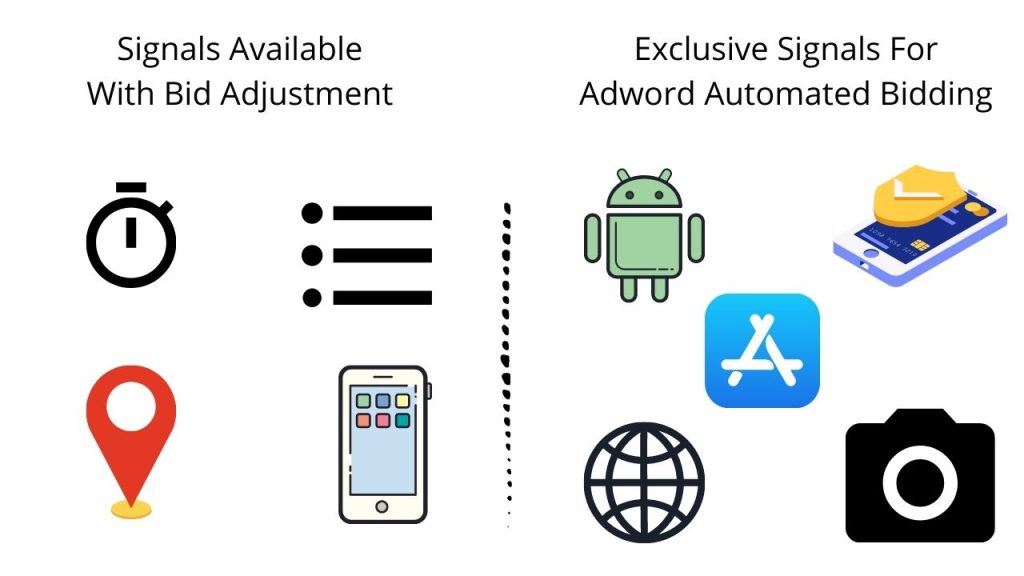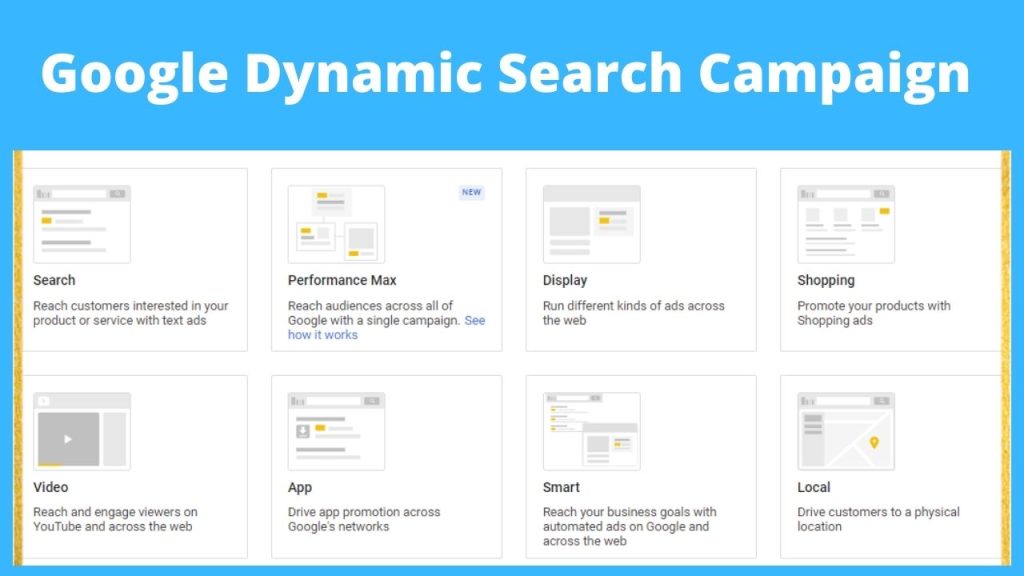Any website operator must increase website traffic. And as a result, many of you employ various strategies, including advertisements, web campaigns, etc. But in this post, I’ll explain the efficient strategy—”Dynamic Search Ads”—that can help you improve the position of your website in search result pages as well as its benefits and drawbacks.
In your paid search campaign, have you considered using dynamic search ads? Let’s think DSA through to help determine if this ad makes sense in your sponsored search mix.
Dynamic Search Advertisements misapplied might have a very severe impact on your account’s performance. But in the appropriate situations, these AI-generated advertisements can be just right.
So let’s start by delving into the fundamentals.
What are Dynamic Search Ads?
Dynamic search ads are the most straightforward approach to locating new clients on Google. These adverts are ideal for websites that have been carefully crafted. Dynamic advertisements target your adverts based on the data on your website. Also, they assist users in filling in the keywords when searching.
Moreover, Dynamic Search Ads enable Google Adwords to construct advertisements using your website rather than a predetermined set of terms. These advertisements are content-specific rather than keyword-specific. With little effort, these advertisements are used to get more clicks and conversions. By targeting advertisements depending on the complete content of a website, dynamic adverts assist advertisers in gaining more traffic.
Let’s continue and examine the advantages and disadvantages of Dynamic Search Ads. Hence, what are information retrieval ads, and how do I use them?
What are Dynamic Search Advertisements, leaving Google paranoia aside? Dynamic Search Ads are a brand-new method of prospect targeting without using keywords. Here is how it works:
- You tell Google that you want to include every web page (i.e., every page that Google has crawled), OR
- You tell Google that you wish to add one of the following four categories of targets;
- This is Google’s categorization of the pages on your website and their deemed themes; it is not your categorization.
- URL: You can focus on particular URLs or patterns (i.e., subfolders representing your categorization).
- Page title: This is derived from the headings of your pages.
- Page Content – The on-page material is referred to here.
- By using the method above, you specify what you want to exclude.
- You write ad copy and headlines (Google will dynamically generate a headline for you).
- When deciding which keywords to use for your ad and which landing page to direct traffic to, Google looks at your content (as well as what your headline should be).
When Might Using Dynamic Search Advertising Make Sense?
One of the more usable forms of AI marketing is Dynamic Search Ads. Dynamic Search Ads can be used in the following situations:
- Give the campaign a try and check your ROI if you’re paying a few hundred dollars a month on pay-per-click. If so, you very well may be this person. If it is, and you have had difficulty with AdWords in the past, let this approach run and concentrate more on other aspects of your company.
- The ideal use case for keyword discovery for medium-sized to large advertisers is probably a fresh approach for keyword expansion. You can produce more relevant traffic that you might not have otherwise known about by using dynamic search advertisements to uncover keywords that you might not have in your campaign and then utilizing the best performers.

The Pros Of Dynamic Search Ads
1. Increased Website Traffic
Your website can only have good access with traffic. People access your website through ads, which grows website traffic. And this growth can result in sales. Dynamic Search Advertisements can efficiently and cheaply direct high-quality visitors to the most relevant landing pages.
2. Boost Effectiveness
You can increase your ad management’s effectiveness with Dynamic Search Ads. DSAs automatically receive valuable data from Google. Determining the ideal keyword, product ad wording, and other factors takes a lot of effort.
3. Application Control to Ads
Google automatically creates the updated Dynamic Search Ad content for your website. The modifications you make to your site will also be reflected in the advertising.
4. Generating Headlines Adaptively
It aids in the development of catchy headlines for your goods and services. The generated headlines will contain the users’ search terms and direct them to the landing page on your website.
5. Computerized Keyword Analysis
Dynamic search advertising shows you the newest keyword trends. You don’t need to spend time researching long-tail keywords. You will be automatically informed of your website’s most recent and popular keywords.
6. Fill up the Keyword Coverage Gap
DSAs assist advertisers in bridging the gap between keyword inventory and coverage. Now it will crawl both your page and a feed of all the products. Also, it will display the keywords that are commonly marked as spam in Google AdWords.
7. Negative URLs and Keywords For Google’s
AI targeting to be more precise and the margin for a mistake to be smaller, DSA offers the option of eliminating keywords or URLs (contact, careers, etc.). DSA still has a big audience and invariably attracts a lot of traffic.
8. Manual Extensions and Descriptions
We can define extensions and descriptions, just like with manual campaigns. This guarantees that our dynamically created ad copy conveys the calls to action, brand messaging, and particular and distinctive selling aspects.

The Cons Of Dynamic Advertising
1. Restricted Control
Although negative keywords offered by Dynamic Search Ads provide you complete control over when your ads are delivered, you still need to consider this when choosing DSAs and how they will aid you in accomplishing your objectives. You will achieve better outcomes if your ad target is more clearly defined.
2. Useless for Little Websites
First, work on raising your website’s ranking. DSAs are said to be intended for big websites. So, those who have a small website or little traffic will only be able to benefit from this.
3. Unexpected Results
While letting Google run your campaign, you must exercise extreme caution. You can only be sure of the outcomes if the dynamic ad target you chose is good and you have a whole list of negative keywords. Your advertising may be served at any moment by the system.
4. Advertising Doesn’t Fit the Headlines
Some advertisers may need help to create Dynamic Search Ad headlines. DSAs are not the best choice for you if you want complete control over the headline that appears alongside your brand.
5. Performance
Performance will undoubtedly suffer if a DSA serves as your sole search campaign. This results from a broad reach instead of manual, selective keyword targets.
DSAs choose irrelevant keyword targets based on the content of the landing pages you have chosen. You might develop a broader range of keyword objectives that are outside your target market.
6. Dependent
The Effectiveness of your website’s optimization significantly impacts dynamic search ads. Google will more successfully target keywords while producing potent dynamic search advertising if the content and general condition of your final URL (or URLs) are strong.
8. Increased Ad Spend
Whether or not the traffic is the targeted “buyer” traffic you truly want, more spending is always a result of more traffic.
9. Lack of Ad Control:
You write headlines and descriptions by hand. AI writes the reports. Despite the advancements in Google’s AI, automatically generated ads may still transmit messages inconsistent with your brand or objectives.
Apply DSA when you need AI support to complement your human campaign and ensure complete keyword coverage if you handle hundreds to thousands of pages (in eCommerce, for example).
Since the daily budget for your highly focused manual advertising is no longer an issue, you are looking for ways to increase reach. After all, 15% of daily searches, according to Google, involve brand-new keyword combinations. We don’t want our rivals to take those searches away from us!
You are willing to compromise performance to launch a campaign because you have no time to handle a sponsored search campaign.
Risks Associated with Dynamic Search Advertising
With this new choice, you should be aware of the following:
ROI – Similar to broad match, location targeting, and other AdWords features, giving Google complete control often results in Google receiving the best ROI, but only sometimes for the advertiser.
What pages are you including? Be cautious about the sites or groups of pages you submit for consideration because it could be expensive to make available pages that would provide a bad landing page experience or irrelevant targeting.
Budget Allocation: Be careful not to allocate too much of your cash to a campaign that isn’t doing well if you use dynamic search advertisements for keyword discovery.
Dynamic search advertisements, like almost every other AdWords feature, can be helpful in some situations (especially for e-commerce advertisers). Still, you must carefully monitor their efficacy and use them judiciously.
You should look at DSAs as you would do with a typical structure of text campaigns: think about the product categories you have and how granular they are. When you determine how many different product categories you have and how complex they are, you will understand how DSA campaigns should be structured.
What Are Your Criteria for Targeting Dynamic Search Ads?
You require laser-sharp copy and precise targeting to manage your costs.
Both are necessary. You will only convert if your targeting is precise and your copy is strong. On the other hand, even if your material is excellent and your targeting is perfect, the right customers may not see your advertisement.
With Dynamic Search Advertising, you may target certain term groups that your market will actively look for using already-existing web pages. Your entire website’s web page data will be used to determine which advertisement Google displays to the user.
Because of this, Dynamic Search Advertising is unique. Google shows a relevant advertisement based on the user’s search terms.
Personalization of ads is crucial. Your ad targeting & messaging should always aim to be more precise. Your ad’s relevance will be essential to increase brand clickthroughs.
But how precisely can you use dynamic search ads to target your audience?
The basis of most Google Dynamic Search Ad campaigns is page data. Google provides the three targeting categories listed below:
- Categorization
- Domain name
- other elements, such as the page title or contents
These elements can be used to create a pertinent DSA ad group.
You can avoid the irrelevant traffic that often results from regular advertisements due to Google’s algorithm by using this DSA ad group. Let’s examine each, in turn, to see how it functions.
You can build up specific targeting criteria for categories. For instance, you might restrict your targeting to the landing pages from the regular ad groups you employ throughout your marketing campaigns. Dynamic Search Advertising would be served for queries containing search phrases pertinent to those pages.
You can target broadly or specifically using Google Dynamic Search Advertising, depending on your preferences. You may want to focus on specific URLs. You can target broad matches with the “URL Contains” function, and with the “URL Equals” function, you can target precise matches.
Dynamic Search Advertising will be a tool in your marketing arsenal to help you convert more customers and boost sales, regardless of the targeting method you select.
Conclusion
Dynamic Search Ads are an excellent tool for focusing new campaigns and bringing in more visitors to the website. These advertisements must be adequately maintained to ensure they hit the right target. It would help if you fully comprehended the advantages and disadvantages of DSAs for this.
If done correctly, dynamic search ads are a terrific way to complement your current text ad search.
It enables you to efficiently use your website content to capture searches your text advertising does not cover. Using Google Dynamic Search AdWords, you might earn a tidy sum and raise your brand awareness if configured appropriately.





